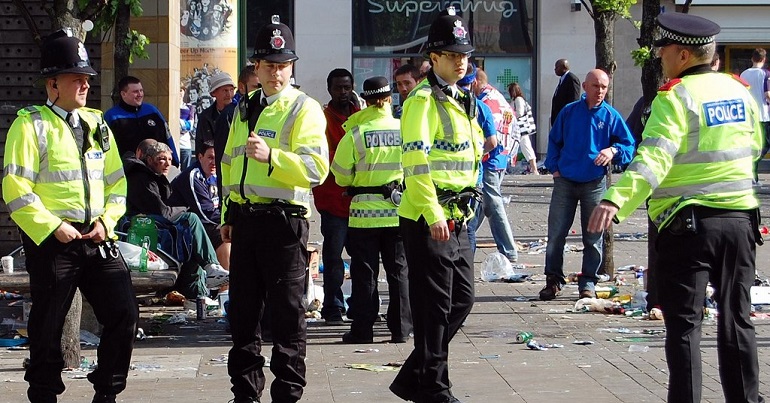Dick of the Year – Superintendent Nelson Telfer
This nomination comes from two of the Glasgow University occupiers, writing anonymously and in a personal capacity.
Superintendent Nelson Telfer of Strathclyde Police is far from the most well known of 2011’s Dick of the Year nominations. Indeed, the height of his fame came on 22 March, when he appeared on STV’s evening news. His mission: to deny that that day’s eviction of the ‘Free Hetherington’ occupation at Glasgow University – an operation involving up to 80 officers, a helicopter and a dog unit alongside the university’s own security – had been anything other than a proportionate and orderly response to a situation that was rapidly spiralling out of control. Only one arrest had been made, he insisted, ‘and that was after the incident’. No people had been injured, he claimed – despite the fact that one student had left in an ambulance suffering concussion. Allegations of police brutality were ‘absolute nonsense’ – despite 15 peaceful occupiers being forcibly (and illegally) manhandled from an, at that time, seven week old occupation.
It’s true that only one student had been lifted on the day – but only because three others had been earlier ‘de-arrested’ by Telfer himself, who marched into the university building where they were being detained and announced it in an effort to de-escalate the situation, with ‘700 students’ gathered outside by this point. So it an inspired act of doublethink that saw Nelson appear on STV that night claiming a just and proportionate response to the situation. Particularly when, at 7am the next morning, two of those arrested – one a qualified nurse and the other a school student – were then taken back into custody and hit with ludicrous charges of assaulting police officers.
At the uni, meanwhile, the Free Hetherington was back in the hands of the occupiers: following the eviction, an inspiring show of solidarity saw hundreds of the gathered onlookers force their way into the university’s palatial senate rooms, and in a desperate bid to eject them from there, uni management were forced to concede on the re-occupation of the Hetherington. Fortunately for the three arrestees, their court appearance the following month was cancelled, and all are currently ‘liberated’, although the Crown still has a few months left to press the charges again if they desire.
In June, several hundred Strathclyde University students joined a march against the cutting of four departments. Just as it was reaching its end, the police decided to move in, arresting a student for shouting through a megaphone. A lengthy stand-off ensued, as dozens of students blockaded police vans from leaving, during which another student was arrested and several were assaulted, one obtaining a black eye. By now you probably won’t be shocked to hear who the officer in charge of that day’s policing was.
Two days later, he cropped up again as the officer in charge of the anti-rape ‘Slutwalk’ in Glasgow – in a policing operation that saw ‘several police vans mass around the square, along with four officers on horseback, a helicopter, undercover officers and others using video cameras’. Apparently this was because they didn’t know whether there’d be ‘3000 or 30,000 protestors’; in the end there was about 200, mostly young women on their first demo. But it provided a neat opportunity for an exercise in intimidation and intelligence gathering, and, in an unprecedented move, Nelson rounded the day off by reporting two organisers to the Procurator Fiscal for organising an unauthorised march.
Across the country, this year has witnessed political policing of a style and ferocity unseen on the British mainland for 20 years or more. This trend has been particularly pronounced in Glasgow where the police seem to have embarked on a strategy of pinning down as many charges against as many of those active in the anti-cuts movement as possible. Let’s be clear – policing of this kind is not the doing of one officer, but a systematic attempt to crush the emerging movements against austerity. But while the orders may come from on high, few have taken on this role with such gleeful arrogance as our nomination for Dick of the Year, Superintendent Nelson Telfer.





But he is an Inspector of Police, so he must be right! A Public Servant of the highest standing! Such Arrogance based upon the sweet ignorance of doing his masters bidding! I second his nomination. As a father of four I have always promoted respect for emergency services. Now however my advice would be to be careful, as there are massive variations in standards these days!